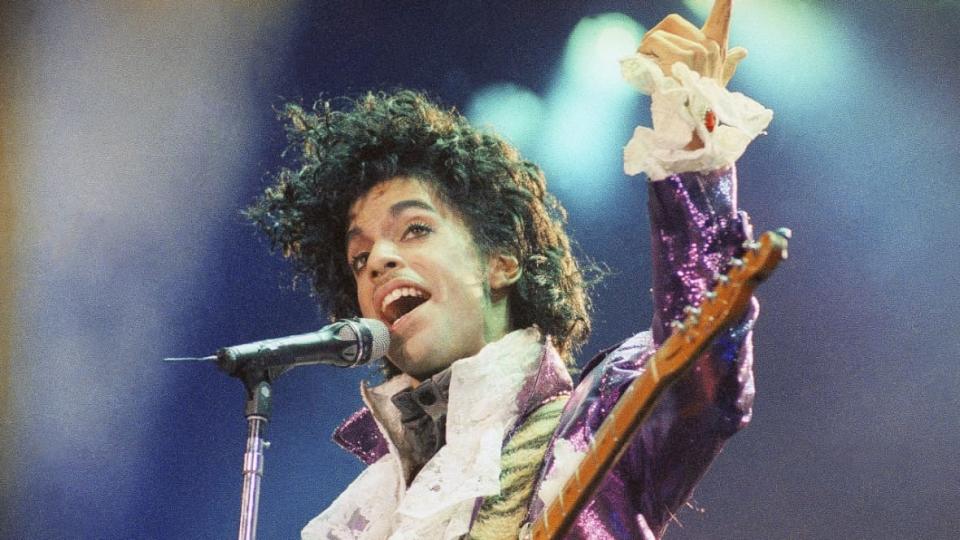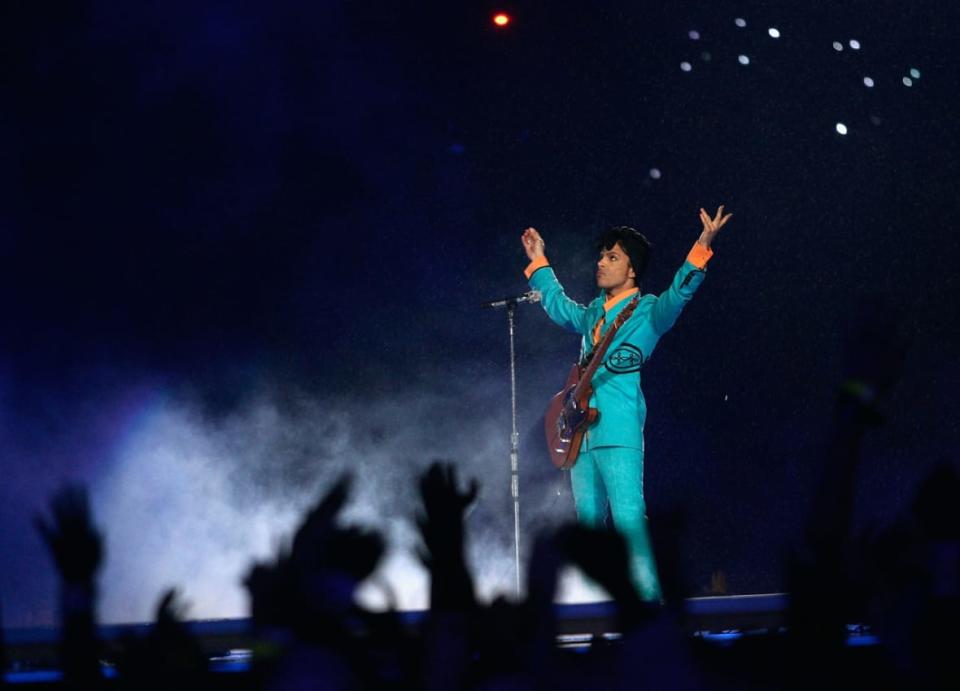Prince, music estates, and the ethics of posthumously releasing music
- Oops!Something went wrong.Please try again later.
- Oops!Something went wrong.Please try again later.
- Oops!Something went wrong.Please try again later.
Opinion: Part four of theGrio’s four-part series on Prince engages in discourse about the moral dilemma when it comes to music estates dropping unreleased music of deceased artists.
Editor’s note: The following article is an op-ed and the views expressed are the author’s own. Read more opinions on theGrio.
Prince’s catalog of music was so vast that only his unreleased music could compete with it. One of the most mythical aspects of Prince’s story is his infamous vault. Following his death, it was reported that his estate could conceivably release albums of unheard music for 100 years.
Since Prince’s death in 2016, his estate has worked with Warner Bros. to release super deluxe versions of his most popular albums, including “Purple Rain,” “1999,” and “Sign O’ the Times.” Each super deluxe album features numerous outtakes and songs — from the respective album sessions and eras — that weren’t officially released.
While the music included in the albums could be better, it begs whether if alive, would Prince would be pleased with music being released without his permission. Few artists understood the value and importance of ownership of master records as Prince did, and this knowledge has caused some to question whether or not the releases are in the best interest of his legacy.

Prince is just one subject in the larger conversation about the ethics of musical estates of deceased artists unveiling unreleased music. When examining the moves of the estates of departed acts Michael Jackson, Aaliyah, Tupac Shakur and Whitney Houston, and the discourse of some living artists, is dropping unreleased music a matter of artist celebration, or just postmodern grave robbing?
L. Londell McMillan, Prince’s former lawyer and estate organizer, understands the polarizing topic of the ethics with releasing music after an artist’s death.
“I think the issue around the discourse kind of revolves around this issue of respect and people’s intent,” McMillan told theGrio. Much of the posthumous releases of Prince’s super deluxe albums happened before McMillan and his team took control of the estate this year. While the super deluxe releases were mostly met with praise, it was another release that raised eyebrows.
In 2010, Prince embarked on his highly successful “Welcome 2 America” tour. Initially, the tour was to coincide with the release of a brand new album of the same name, but Prince canceled the release for an unknown reason, which is still currently unknown. In 2021, his estate released the album to the public in full, with an official album cover and photography.
“Welcome 2 America” was just one of several projects that Prince relegated to his vault without explanation. Filmmaker Kevin Smith, who Prince brought in to direct one of his celebration gatherings and listening party for “The Rainbow Children,” said that Prince put music in his vault (from demos to fully mixed tracks), documentaries and no less than 50 fully produced music videos.
This knowledge begs the question, did he ever intend for it to be heard by the public? McMillan believes so.

“If Prince indeed wanted it never to be released, one argument could be that he would have discarded and then destroyed it and got rid of the music,” McMillan said. “It was in a vault for a reason. [Prince] made comments about the vault, saying one day, you will hear the music for a reason.“
A group of artists have expressed the contrary to what McMillan says about Prince. When an artist records an album, many songs are written and recorded. Some songs don’t make it past the demo phase. Others are developed in various stages before a finished product is done. Many entertainers do this without letting the public hear anything they create that needs the highest quality or needs completion.
In some cases, releasing demos is a window into the creative process that gives some insight and perspective to the performer. For instance, John Coltrane’s estate released 2018’s “Both Directions at Once: The Lost Album.” Jimi Hendrix’s estate has profusely dropped unearthed music from the late guitarist-composer, including 2013’s “People, Hell and Angels,” a full-on posthumous album.
Anderson .Paak went so far as to tattoo on his arm that his family is never to drop his unreleased music after he dies. If he feels this way, others think this is taking advantage of the deceased artist.
In 2012, Drake announced that he planned to record and release a posthumous Aaliyah album. The project was set to feature the unreleased vocals of Aaliyah, who died in 2001, with production from Noah “40” Shebib. However, the project was abandoned in 2014, with Shebib stating that the public’s unfavorable response to the prospect led them to cancel it.
Michael Jackson recruited numerous artists to record a new album toward the end of his life. Artists like Will.i.Am and Ne-Yo said they collaborated with Jackson, writing and recording demos for him, but refused to release them after his 2009 death, citing that it doesn’t feel right without his input.

Conversely, Jackson’s estate has released two posthumous albums of Jackson’s unreleased music, 2010’s “Michael” and 2014’s “Xscape,” with producers like Timbaland and Rodney Jerkins making tracks around Jackson’s unused vocals. Last year, three songs from “Michael” were removed from the album following a lawsuit that alleged the vocals from three songs were from a Jackson imposter and not Jackson.
For “Xscape” promotion, a hologram of Jackson performing “Slave to the Rhythm” aired at the 2014 Billboard Music Awards. Holograms have been a hot-button topic when it comes to deceased artists. A hologram of Shakur, whose posthumous albums outnumber those released during his life, was used at Coachella, with Snoop Dogg performing alongside it. A Whitney Houston hologram spent eight months at a Las Vegas residency in 2022.
While Jackson, Aaliyah and Houston never publicly expressed feelings about posthumous releases during their lifetime, there are times when an estate goes against an artist’s wishes. Aretha Franklin’s “Amazing Grace” documentary and concert film premiered mere months after her 2018 death. The film opened to rave reviews from critics and viewers alike, but Franklin nixed the film’s release twice during her lifetime.
Who’s more at fault; the film’s producers for asking Franklin’s family to release the movie so soon after she died, or her family and estate for saying yes after Franklin was so clear about keeping the film from being screened? What complicates things is that the film is an excellent, essential piece of American music history that showed Franklin at the peak of her powers.
Do the ends justify the means?
The issue of whether or not to release music, video, or otherwise of deceased artists isn’t simply a Black or white issue. When you look at Prince’s estate, posthumous music must reach the fans. Looking at the estates of Jackson, Franklin, Aaliyah, Hendrix, and others, it gets more complicated.
Propping a hologram of a dead artist on stage as if they were still alive or allegedly putting a vocal imposter on an album is perplexing at best, and is in extremely poor taste at worst. An artist or producer should not attempt to record an album from a deceased singer outside of the family or estate’s blessing, regardless of intention.
Because Prince’s super deluxe albums contain mostly finished songs, they add to his legacy more than they hinder. But because he never definitely clarified his wishes, one will really ever know.
Considering how muddy the ethics are, artists need to follow the lead of Anderson .Paak by unequivocally declaring during their lifetime what they want regarding the music they leave behind, whether in their will or tattooed on their arm.

Matthew Allen is an entertainment writer of music and culture for theGrio. He is an award-winning music journalist, TV producer and director based in Brooklyn, NY. He’s interviewed the likes of Quincy Jones, Jill Scott, Smokey Robinson and more for publications such as Ebony, Jet, The Root, Village Voice, Wax Poetics, Revive Music, Okayplayer, and Soulhead. His video work can be seen on PBS/All Arts, Brooklyn Free Speech TV and BRIC TV.
TheGrio is FREE on your TV via Apple TV, Amazon Fire, Roku, and Android TV. Please download theGrio mobile apps today!
The post Prince, music estates, and the ethics of posthumously releasing music appeared first on TheGrio.

